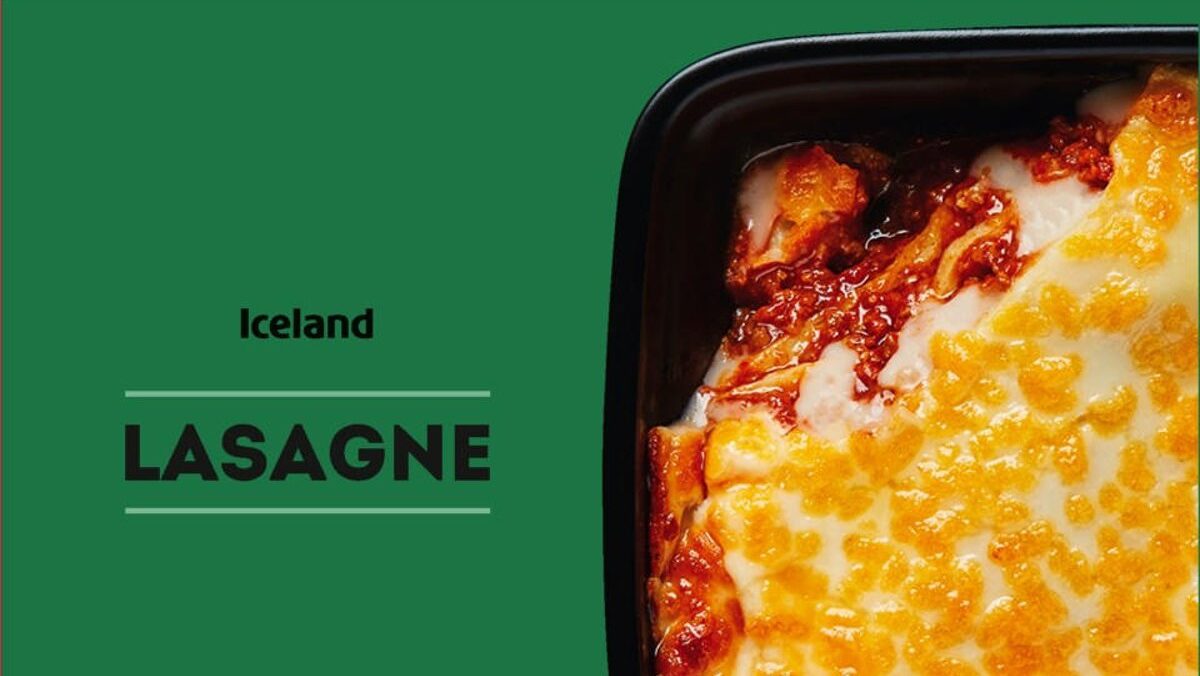Kuwait Warns Consumers About Iceland’s Vegetable Lasagna Contamination
The General Authority for Food and Nutrition in Kuwait has issued an urgent warning to consumers regarding Iceland’s Vegetable Lasagna. The authority strongly advises against consuming the product and recommends its immediate disposal due to concerns over contamination. Officials stress that public health and safety remain a top priority, urging consumers to take precautionary measures.
The primary issue involves the presence of hard plastic pieces within the frozen lasagna, making it hazardous for consumption. If accidentally ingested, these foreign objects could cause choking or internal injuries. The affected product comes in 400-gram packaging, with expiration dates of July 23, 2026, and July 30, 2026. As a safety measure, the product is being withdrawn from the market to prevent any potential health risks.
Consumers Advised to Dispose of the Product Immediately
Authorities have instructed consumers who have purchased Iceland’s Vegetable Lasagna to check the expiration dates on their packages and dispose of any that match the affected batch. This step is crucial to preventing possible health complications that may arise from consuming contaminated food.
The General Authority for Food and Nutrition emphasizes the importance of adhering to this warning to ensure public safety. Additionally, retailers are advised to immediately remove the product from store shelves to prevent further sales.
Quality Control and Food Safety in Focus
This incident highlights the critical need for strict quality control measures in food production and distribution. Food contamination cases like this one serve as a reminder of the importance of rigorous inspections and stringent safety protocols. Consuming food contaminated with plastic or other foreign objects can lead to severe health complications, including gastrointestinal injuries and other medical issues.
Food safety authorities worldwide continue to monitor and address such incidents to prevent health risks. Consumers are encouraged to stay informed about product recalls and safety alerts issued by regulatory agencies. Awareness plays a vital role in helping people make informed choices and avoid potential health hazards.
UK Also Issues Warning on Iceland’s Lasagna
In a related development, the United Kingdom’s Food Standards Agency (FSA) also issued a recall notice for Iceland’s Vegetable Lasagna due to concerns about plastic contamination. The FSA advised customers to return the product to the store for a full refund and warned against consuming it. The agency stated that even small fragments of plastic in food could pose serious health risks, making the product unsafe for consumption.
This international recall underscores the importance of global food safety regulations. While recalls help prevent widespread health issues, they also raise questions about how such contamination occurs and what measures can be taken to prevent similar incidents in the future.
Food Waste and Safety Concerns in Kuwait
Beyond food contamination concerns, Kuwait has been dealing with a significant issue of food waste. Official statistics reveal that approximately 400,000 tons of food are wasted annually in the country, with the average person discarding around 95 kilograms of food per year. This level of waste not only represents a loss of valuable resources but also creates environmental and economic challenges.
To address this problem, Kuwait’s Ministry of Commerce and Industry has launched initiatives to raise public awareness about responsible food consumption. A newly formed committee is working on a nationwide campaign aimed at educating citizens on the environmental and financial impacts of food waste. Officials hope that by promoting better habits, food consumption can be managed more efficiently, reducing both waste and associated costs.
Regulatory Actions Against Expired and Unsafe Foods
In addition to tackling food wastage, Kuwaiti authorities have taken strict measures against companies distributing expired or adulterated food products. In a recent case, the Ministry of Commerce and Industry urged the Federation of Associations to take action against three companies found with large stocks of expired meat, fish, and cheese. The discovery of these expired products raised major concerns about food safety violations and the need for stricter regulations in the industry.
Ensuring that all food products meet health and safety standards remains a key priority for Kuwait. Authorities continue to monitor food businesses to prevent similar violations and protect consumers from health hazards linked to contaminated or expired goods.
Consumer Awareness is Key to Food Safety
The recent warning about Iceland’s Vegetable Lasagna is another reminder of the importance of food safety vigilance. Consumers should regularly check for product recalls and adhere to guidance from food safety authorities. Simple steps like verifying expiration dates, staying updated on safety alerts, and ensuring proper food storage can help protect individuals and families from potential health risks.
For ongoing updates on food safety warnings, consumers are encouraged to follow official government announcements and trusted news sources. Staying informed is a crucial step in preventing illnesses and ensuring that only safe food is consumed.
Kuwait’s Commitment to Food Safety
The General Authority for Food and Nutrition’s proactive stance on the Iceland Vegetable Lasagna recall reflects Kuwait’s broader commitment to ensuring public health. By swiftly addressing potential food safety concerns and promoting awareness, authorities aim to protect consumers and encourage responsible food consumption practices.
Authorities also stress the importance of international cooperation in food safety. With global supply chains spanning multiple countries, contamination issues in one region can quickly affect consumers elsewhere. Strengthening food safety regulations, conducting regular inspections, and enforcing strict penalties for non-compliance are crucial steps in preventing similar incidents in the future.
As Kuwait continues to improve its food safety measures, consumers play a vital role in safeguarding their health by staying informed and taking necessary precautions.
Do follow gulf magazine on Instagram
for more information click here



